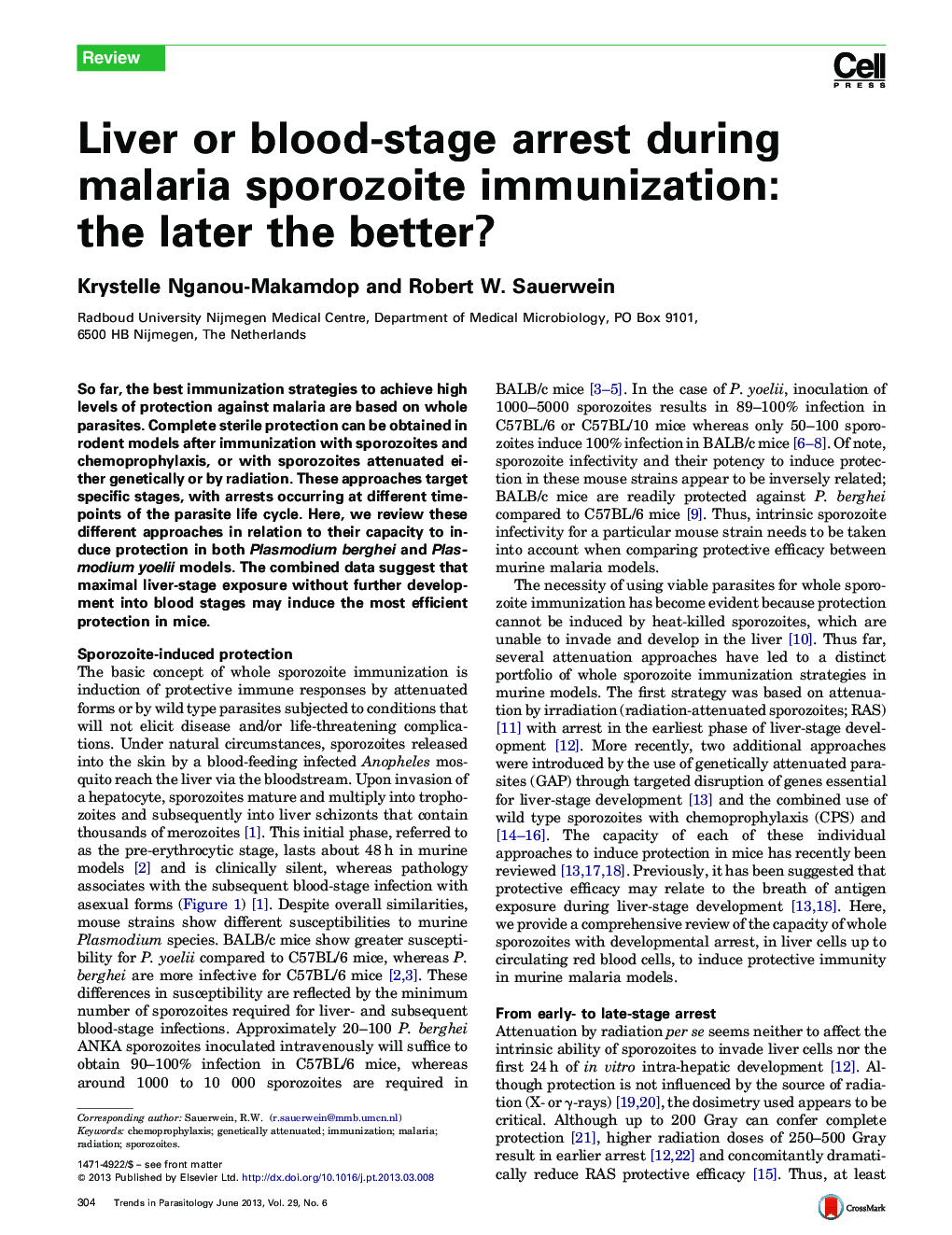| Article ID | Journal | Published Year | Pages | File Type |
|---|---|---|---|---|
| 3423180 | Trends in Parasitology | 2013 | 7 Pages |
•Protective efficacy of sporozoite immunization is increased with antigen exposure.•Maximal liver stage exposure likely has the highest protective efficacy.•Blood stage exposure seems to impede pre-erythrocytic immunity.•The stage of arrest seems to be more important than the method used.
So far, the best immunization strategies to achieve high levels of protection against malaria are based on whole parasites. Complete sterile protection can be obtained in rodent models after immunization with sporozoites and chemoprophylaxis, or with sporozoites attenuated either genetically or by radiation. These approaches target specific stages, with arrests occurring at different time-points of the parasite life cycle. Here, we review these different approaches in relation to their capacity to induce protection in both Plasmodium berghei and Plasmodium yoelii models. The combined data suggest that maximal liver-stage exposure without further development into blood stages may induce the most efficient protection in mice.
